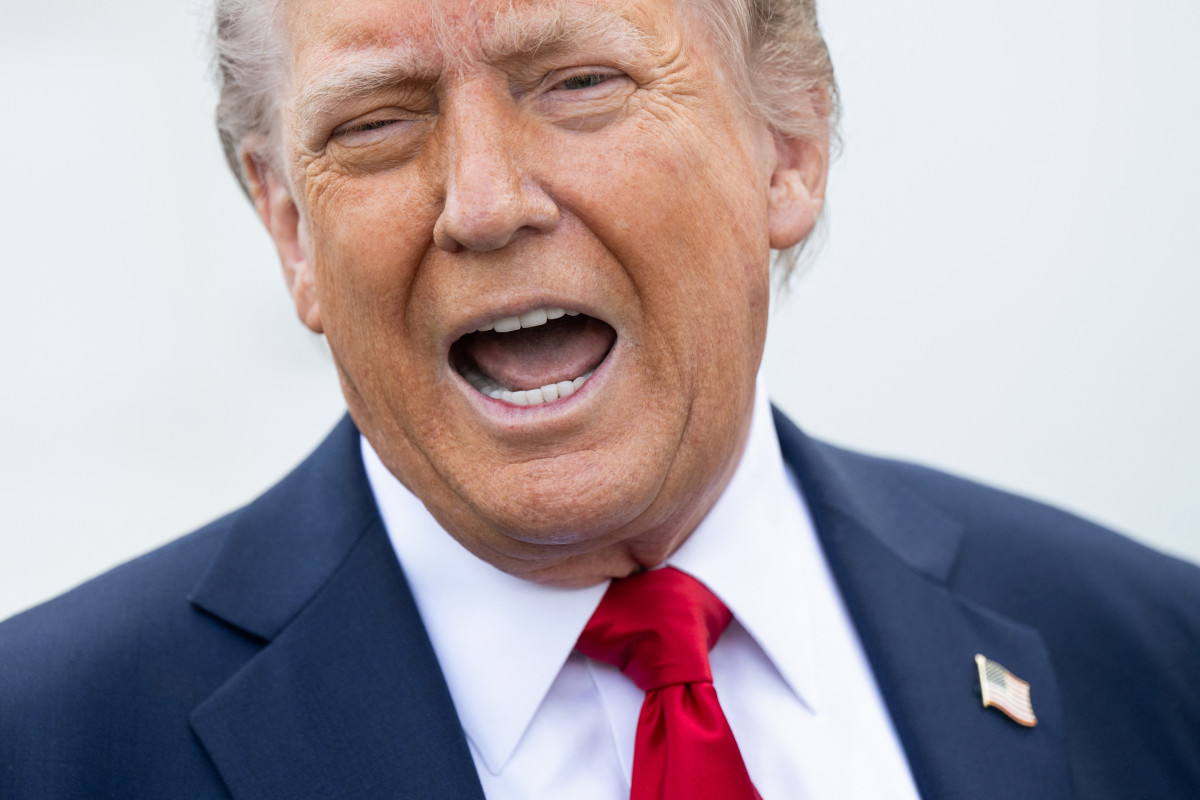In a rare letter addressed to top Trump administration officials, a coalition of auto industry trade organizations representing a wide base of domestic and foreign automakers, parts makers, and auto dealers warned that the looming tariffs on auto parts will have a disastrous effect on the greater auto industry and those who make it their lives’ work.
Specifically, they warn that the tariffs can potentially disrupt the global supply chains that automakers rely on and lead to production stoppages, layoffs, job losses, and financial instability for important suppliers.
“Most auto suppliers are not capitalized for an abrupt tariff-induced disruption,” the letter dated April 21 said. “It only takes the failure of one supplier to lead to a shutdown of an automaker’s production line. When this happens, as it did during the pandemic, all suppliers are impacted, and workers will lose their jobs.”
Getty Images
Industry advocates warn tariffs will set off a “domino effect”
The letter is a rare joint statement from groups representing businesses across the auto industry’s vast supply chain, from parts makers to dealers, which, as a whole, they claim, represent 10 million American jobs and contribute $1.2 trillion to the U.S. economy per year. Their statement captures the widespread fears that executives and analysts have about the impact tariffs on auto parts will have on the industry, specifically with parts suppliers. Many suppliers still face the financial ripple effects from the COVID-19 pandemic and years marked by inflation and supply chain challenges.
“Tariffs on auto parts will scramble the global automotive supply chain and set off a domino effect that will lead to higher auto prices for consumers, lower sales at dealerships, and will make servicing and repairing vehicles both more expensive and less predictable,” the letter said.
Among the signees of the letter addressed to U.S. Treasury Secretary Scott Bessent, Commerce Secretary Howard Lutnick and U.S. Trade Representative Jamieson Greer are the leaders of key trade groups, including the Alliance for Automotive Innovation, which represents automakers, suppliers, and tech companies, the American Automotive Policy Council, the lobbying association that represents Detroit’s Big Three (Ford, GM and Stellantis), Autos Drive America, the lobbying arm that represents foreign automakers, MEMA, which represents auto parts suppliers, as well as dealers associations NADA and the American International Automobile Dealers Association.

SAUL LOEB/AFP via Getty Images
On March 26, President Trump signed a proclamation imposing 25% tariffs on all cars imported from other countries. The proclamation also applies to “key automobile parts” like engines, transmissions, and electrical components. These tariffs on car parts are set to take effect “no later than May 3,” but the Administration states that USMCA-compliant parts will remain tariff-free until officials can determine their non-US content accordingly.
The letter itself follows a fairly recent statement suggesting that the administration might consider easing the tariff impact on the auto industry. On April 14, President Trump told reporters from the Oval Office that he was considering tariff exemptions as automakers try to reconfigure their supply chains.
“I’m looking at something to help some of the car companies where they’re switching to parts that were made in Canada, Mexico, and other places,” Trump said. “And they need a little bit of time. Because they’re going to make them here. But they need a little bit of time. So I’m talking about things like that.”
In response to this development, the trade groups wrote in their letter that such relief is “positive development,” but emphasized that the industry needs more than “a little bit of time” in order to rethink their supply chains.
“We support more manufacturing and additional supply chains that run through the United States, but it is not possible to reroute global supply chains overnight or even in months,” the industry advocates said. “This will take time.”
The letter comes as the Center for Automotive Research on April 16 found that the impact of a 25% tariff levied on the goods imported by automakers could result in additional costs averaging about $5,000 for import parts on each car produced in the U.S., and about $8,600 for each car they import. In total, they estimate that Detroit’s Big Three- Ford, General Motors, and Stellantis- could see increased costs of more than $42 billion, while all U.S. automakers could see increased costs by more than $107.7 billion.
Final thoughts
I’m not very surprised about the impact the Trump administration’s tariffs will have on the automotive industry; they are expensive, and they will become the status quo for as long as this political environment continues.
But to keep this conversation strictly about cars, I worry about the economic conditions’ effect on the future of automobiles in this country. Forget about EVs, hybrids, and all that—I fear a car industry that isn’t driven by innovation and by enthusiasts. I fear that if these economic conditions continue, it could mean that future cars will be made purely by committee, and what will help keep their numbers up. I fear it could mean sayonara to “enthusiast-bred” cars and the weird, quirky stuff automakers make as experiments.